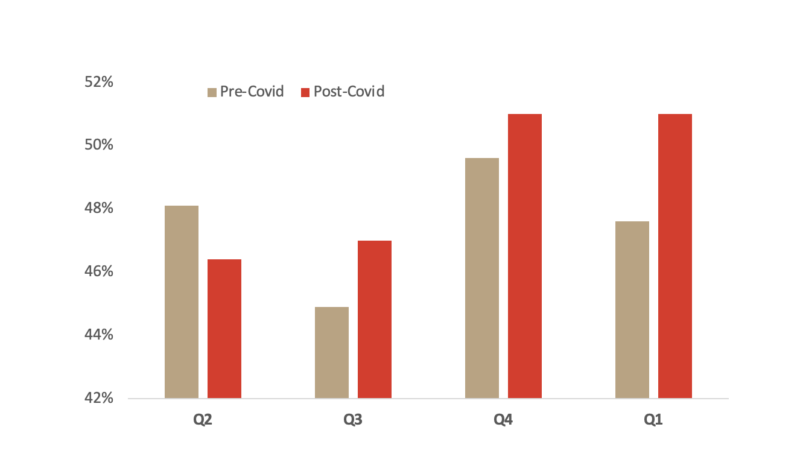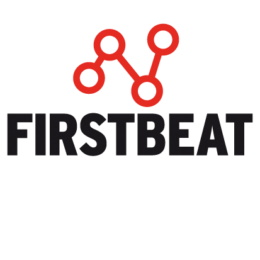
The word “stress” often has a negative meaning. However, the truth is that without stress we would find it very hard to cope with our day to day lives. Stress is a physiological reaction that helps us focus and be more efficient, which makes it essential, for example, for good work performance. On the other hand, too much stress is harmful and can weaken our work efficiency and productivity.
Employee stress management is a shared responsibility between employer and employees. Individual employees have both the freedom and the responsibility to take care of their own well-being and maintain a healthy lifestyle.
Only the individual can practice and develop stress management skills. Every person must find the solutions that work best for maintaining balance. Each of us deals with stress differently, reacting to it based on our own personal traits and life situation.
The employer, on the other hand, has their own tools to support employee stress management. The foundation of those tools is an organizational culture that supports employee well-being and work performance. A culture where:
- The employer systematically invests in employee well-being.
- The actions and goals for better well-being and work performance are carefully chosen and integrated into everyday operations.
- The employer is committed to continuous improvement through monitoring and adaptation.
Successful strategic corporate wellness management addresses individual needs, as well as the shared goals of the work community.
Provide Clarity Even Amidst Change
As the old saying goes, the only constant is change. The uncertainty it brings can be very exhausting for employees. Luckily, there is much that the employer can do to ease the stress of change and continue supporting employees’ stress management.
No matter the circumstances, employers must ensure that working conditions remain safe and manageable. In the face of change, it is important for employers to make sure employees have the competence and skill set needed to continue to do their jobs well. Keeping tasks and roles clearly defined helps alleviate uncertainty, even though this can be challenging when change is rapid.
It is important to allow employees to influence their roles. It comes down to providing as much clarity as possible in each situation, while giving employees a sense of control over their work. That sense of control, as well as the feeling of being appreciated and valued, are crucial for employee well-being.
Emphasize the Importance of Taking Breaks
How can we then manage workplace stress and ensure that it won’t get too high? Well, the number one crucial step is to make sure that employees are given time for sufficient recovery during the workday. Recovering moments throughout the day aid us in balancing stress and can also help us sleep better at night. It is the healthy balance between stress and recovery that makes all the difference. However, the Firstbeat data shows that nearly 50% of us do not recover enough during the workday.

Picture 1: Managing stress and recovery is on everyone’s agenda right now. The prolonged Covid-19 pandemic seems to have increased the perceived stress. The graph, based on Firstbeat database, represents a comparison to the results of the same period in earlier years (2017-2019).
It is the employer’s responsibility to emphasize the importance of taking breaks. Employer also plays a crucial part in building routines and a culture that allow taking breaks, even amidst all the meetings and myriad urgent tasks.
Unfortunately, it is too easy to skip breaks, and people don’t realize how it impacts stress and recovery. There is an unhealthy tendency to cut out breaks when times are busy. This turns into a habit over time. It is precisely in those periods of high stress when we need a recovery break the most.
Remote work can also lead some people to skip breaks. They might eat lunch in front of the computer and sit still all day almost as if glued to their chairs. Even when getting up to fetch some coffee, they might still be looking at emails and messages on their phones the whole time.
When you add back-to-back online meetings to this, excess stress and load are basically the guaranteed result. With remote work, self-management skills become extra important. Of course, the employer must also make modifications to the company’s policies and practises, if needed, to support working from home.
Not all breaks are equal, either. The best type of break depends on the context. For someone who has not been able to recover during the day, or generally struggles with recovery, the break time should be used for relaxing. Getting their mind off of work for a moment should be the goal. For the person who has been sitting in front of the computer all day, a more active break could be needed, such as going on a short walk. Even during the busiest days micro breaks, even a minute or two, can also bring significant benefits.
Agree on Concrete Actions for Stress Management – and Follow Them
The employer and the employees should plan together different types of concrete actions and practises for better stress management. Of course, a critical element for success is that everyone in the company actually follows these. By including the employees in the process of developing these actions, they are also more likely to commit to them.
Each company has its own strengths and challenges, which means that the same practises do not necessarily work for every company. However, often by focusing even on a few key matters you can create a good foundation for successful employee stress management. For instance:
- Make sure there is room for sufficient breaks and uninterrupted work time.
- Utilize flexible working hours and ways of working.
- Respect each other’s private time and detachment from work.
Whether the concrete actions are changes to your meeting culture, agreeing upon silent working hours for uninterrupted work time, or determining a specific time after which no work-related emails will be sent, it is important that you establish these together with your employees.
Firstbeat Life is a corporate wellness solution designed to support employee health risk management and workplace health promotion. Improve efficiency, reduce health costs, build a resilient workforce and create a caring work environment. Learn more about Firstbeat Life.
If you liked this article, you should subscribe to our newsletter.
You might also be interested in

Presenteeism and Why It Matters for Every Employer – 4 Key Steps to Prevent Presenteeism
Presenteeism refers to lost productivity when an employee is working but not fully functioning. This may be due to, for example, illness, workload, or lack of motivation. Especially in the…

Firstbeat Life: How Do You Get Employees Engaged in Corporate Wellness?
When it comes to corporate wellness, one of the most common problems is getting employees engaged. So, what to do? Our specialist gives concrete tips, how to get employees commit to small changes.

Measuring Workplace Well-being: How to Set Goals and Utilize Data
Busy schedules, multitasking, blurring boundaries between work and leisure… To mention a few of the issues many employees are nowadays struggling with. In fact, the struggles of the employees are…

